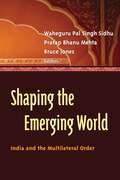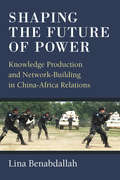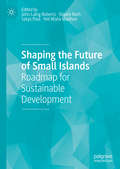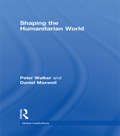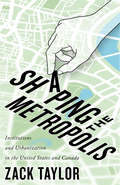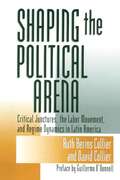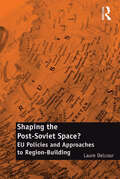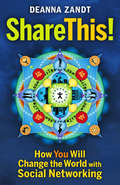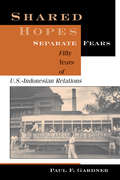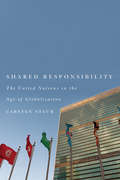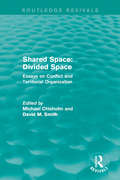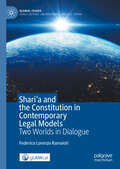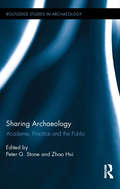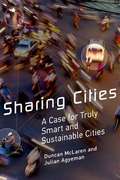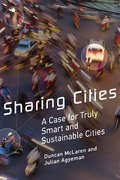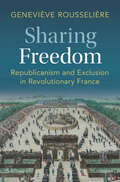- Table View
- List View
Shaping the Emerging World
by Bruce D. Jones Pratap Bhanu Mehta Waheguru Pal SidhuIndia faces a defining period. Its status as a global power is not only recognized but increasingly institutionalized, even as geopolitical shifts create both opportunities and challenges. With critical interests in almost every multilateral regime and vital stakes in emerging ones, India has no choice but to influence the evolving multilateral order. If India seeks to affect the multilateral order, how will it do so? In the past, it had little choice but to be content with rule taking-adhering to existing international norms and institutions. Will it now focus on rule breaking-challenging the present order primarily for effect and seeking greater accommodation in existing institutions? Or will it focus on rule shaping-contributing in partnership with others to shape emerging norms and regimes, particularly on energy, food, climate, oceans, and cyber security? And how do India's troubled neighborhood, complex domestic politics, and limited capacity inhibit its rule-shaping ability?Despite limitations, India increasingly has the ideas, people, and tools to shape the global order-in the words of Jawaharlal Nehru, "not wholly or in full measure, but very substantially." Will India emerge as one of the shapers of the emerging international order? This volume seeks to answer that question.
Shaping the Emerging World
by Bruce Jones Pratap Bhanu Mehta Waheguru Pal SidhuIndia faces a defining period. Its status as a global power is not only recognized but increasingly institutionalized, even as geopolitical shifts create both opportunities and challenges. With critical interests in almost every multilateral regime and vital stakes in emerging ones, India has no choice but to influence the evolving multilateral order. If India seeks to affect the multilateral order, how will it do so? In the past, it had little choice but to be content with rule taking--adhering to existing international norms and institutions. Will it now focus on rule breaking--challenging the present order primarily for effect and seeking greater accommodation in existing institutions? Or will it focus on rule shaping--contributing in partnership with others to shape emerging norms and regimes, particularly on energy, food, climate, oceans, and cyber security? And how do India's troubled neighborhood, complex domestic politics, and limited capacity inhibit its rule-shaping ability?Despite limitations, India increasingly has the ideas, people, and tools to shape the global order--in the words of Jawaharlal Nehru, "not wholly or in full measure, but very substantially." Will India emerge as one of the shapers of the emerging international order? This volume seeks to answer that question.
Shaping the Future of Power: Knowledge Production and Network-Building in China-Africa Relations
by Lina BenabdallahChina’s rise to power is one of the biggest questions in International Relations theory (IRT) and foreign policy circles. Although power has been a core concept of IRT for a long time, the faces and mechanisms of power as it relates to Chinese foreign policymaking has changed the contours of that debate. The rise of China and other powers across the global political arena sparks a new visibility for different kinds of encounters between states, particularly between China and other Global South states. These encounters are more visible to IR scholars because of the increasing influence that rising powers have in the international system. This book shows that foreign policy encounters between rising powers and Global South states do not necessarily exhibit the same logics, behaviors, or investment strategies of Euro-American hegemons. Instead, they have distinctive features that require new theoretical frameworks for analysis. Shaping the Future of Power probes the types of power mechanisms that build, diffuse, and project China’s power in Africa. One must take into account the processes of knowledge production, social capital formation, and skills transfers that Chinese foreign policy directs toward African states to fully understand China’s power-building mechanisms. The relational power framework requires these elements to capture both the material aspects and ideational people-centered aspects to power. By examining China’s investments in human resource development programs for Africa, the book reveals a vital, yet undertheorized, aspect of China’s foreign policy making.
Shaping the Future of Small Islands: Roadmap for Sustainable Development
by Shyam Nath John Laing Roberts Satya Paul Yeti Nisha MadhooThe book provides fresh look at the issues of sustainable development, degradation of natural resources and vulnerability to climate change in Small Island developing states (SIDS). It documents the deteriorating state of SIDS and adaptation efforts made to address the impending crisis of unsustainable economic growth with international, national and community support. Authors have discussed issues like macroeconomic trends, vulnerability, resilience capability, and SIDS-specific strategies focusing on sectors like trade and tourism. Discussion continues with the examination of democracy, social capital, quality of life, and health concerns. Climate change and natural resource challenges are analyzed using case studies. The book also discusses diplomatic complexities of international climate agreements, collective action and institutional quality constitute the analysis of global environment and sustainable development.
Shaping the Humanitarian World (Global Institutions)
by Peter Walker Daniel G MaxwellProviding a critical introduction to the notion of humanitarianism in global politics, tracing the concept from its origins to the twenty-first century, this book examines how the so called international community works in response to humanitarian crises and the systems that bind and divide them. By tracing the history on international humanitarian action from its early roots through the birth of the Red Cross to the beginning of the UN, Peter Walker and Daniel G. Maxwell examine the challenges humanitarian agencies face, from working alongside armies and terrorists to witnessing genocide. They argue that humanitarianism has a vital future, but only if those practicing it choose to make it so. Topics covered include: the rise in humanitarian action as a political tool the growing call for accountability of agencies the switch of NGOs from bit players to major trans-national actors the conflict between political action and humanitarian action when it comes to addressing causes as well as symptoms of crisis. This book is essential reading for anyone with an interest in international human rights law, disaster management and international relations.
Shaping the Metropolis: Institutions and Urbanization in the United States and Canada (McGill-Queen's Studies in Urban Governance #11)
by Zack TaylorRising income inequality and concentrated poverty threaten the social sustainability of North American cities. Suburban growth endangers sensitive ecosystems, water supplies, and food security. Existing urban infrastructure is crumbling while governments struggle to pay for new and expanded services. Can our inherited urban governance institutions and policies effectively respond to these problems? In Shaping the Metropolis Zack Taylor compares the historical development of American and Canadian urban governance, both at the national level and through specific metropolitan case studies. Examining Minneapolis–St Paul and Portland, Oregon, in the United States, and Toronto and Vancouver in Canada, Taylor shows how differences in the structure of governing institutions in American states and Canadian provinces cumulatively produced different forms of urban governance. Arguing that since the nineteenth century American state governments have responded less effectively to rapid urban growth than Canadian provinces, he shows that the concentration of authority in Canadian provincial governments enabled the rapid adoption of coherent urban policies after the Second World War, while dispersed authority in American state governments fostered indecision and catered to parochial interests. Most contemporary policy problems and their solutions are to be found in cities. Shaping the Metropolis shows that urban governance encompasses far more than local government, and that states and provinces have always played a central role in responding to urban policy challenges and will continue to do so in the future.
Shaping the Political Arena: Critical Junctures, the Labor Movement, and Regime Dynamics in Latin America (Kellogg Institute Series on Democracy and Development)
by David Collier Ruth Berins Collier Guillermo. O'DonnellRuth Berins Collier and David Collier are political scientists who use comparative historical research to discover and evaluate patterns and sources of political change. Their work is an overall analysis of Chile, Brazil, Uruguay, Colombia, Argentina, Peru, Venezuela, and Mexico, plus case studies of four distinct pairs in that group: Chile/Brazil, Uruguay/Colombia, Argentina/Peru, and Venezuela/Mexico. In addition, the Colliers meticulously describe and discuss their methods for the study including the limitations of their approach. The authors specifically focus on why and how organized labor movements in the first half of the twentieth century were incorporated into the political process in the eight Latin American countries they study. They analyze the role played by political parties, central government control, worker mobilization, and conflict between radical vs. centrist political philosophies and activities.
Shaping the Post-Soviet Space?: EU Policies and Approaches to Region-Building
by Laure DelcourWhile the European Union (EU) is widely perceived as a model for regional integration, the encouragement of regional co-operation also ranks high among its foreign policy priorities. Drawing on a wealth of sources and extensive fieldwork conducted in the Commonwealth of Independent States (CIS), Laure Delcour questions the pursuit of this external objective in EU policies implemented in the CIS and the existence of an EU regional vision in the post-Soviet area. She asks does the recent compartmentalization of EU policies correspond to a growing fragmentation of the former Soviet Union that cannot be considered as a region anymore? Does it rather reflect the EU's own interests in the area? Interested in exposing why the EU has not pursued a strategy of 'region-building' in the post-Soviet area, Delcour examines the disintegration dynamics affecting the area following the collapse of the USSR, the interplay between different actors and levels of action in EU foreign policy-making and the role of other region-builders. She takes a closer look at the strategic partnership with Russia, European Neighbourhood Policy, Eastern Partnership and Black Sea Synergy as a capability test for the European foreign policy to promote its foreign policy priorities and to raise a distinctive profile in the international arena.
Share This!: How You Will Change the World with Social Networking
by Deanna ZandtShows how both activists and the casually progressive can leverage the power of social networks for social change Helps readers maintain credibility, establish new connections, deal with common fears, and have a good time Authoritative but aggressively non-technical—like talking to a real person with a great sense of humor who really knows her stuff Social networks can be so much more than a way to find your high school friends or learn what your favorite celebrity had for breakfast. They can be powerful tools for changing the world. With Share This! both regular folks of a progressive bent and committed activists can learn how to go beyond swapping movie reviews and vacation photos (not that there’s anything wrong with that). At the moment the same kinds of people who dominate the dialog off-line are dominating it online, and things will never change if that doesn’t change. Progressives need to get on social networks and share their stories, join conversations, connect with others—and not just others exactly like themselves. It’s vital to reach out across all those ethnic/gender/preference/class/age lines that exist even within the progressive camp. As Deanna Zandt puts it, “creating a just society is sort of like the evolution of the species—if you have a bunch of the same DNA mixing together the species mutates poorly and eventually dies off.” But there are definitely dos and don’ts. Zandt delves into exactly what people are and are not looking for in online exchanges. How to be a good guest. What to share. Why authenticity is more important than just about anything, including traditional notions of expertise or authority. She addresses some common fears, like worrying about giving too much about yourself away, blurring the lines between your professional and personal life, or getting buried under a steaming heap of information overload. And she offers detailed, nuts-and bolts “how to get started” advice for both individuals and organizations. The Internet is upending hierarchies and freeing the flow of information in a way that makes the invention of the printing press seem like an historical footnote. Share This! shows how to take advantage of this unprecedented opportunity to make marginalized voices heard and support real, fundamental change—and, incidentally, have some fun doing it.
Share the Dream Bible Study Guide plus Streaming Video: Shining a Light in a Divided World through Six Principles of Martin Luther King Jr.
by Chris Broussard Matthew DanielsIt&’s Time to Share the Dream. . .Dr. King and the men and women around him were able to change history through the power of a dream that was not rooted in mere human principles. That dream was rooted in the love of God for all his children made in his image.Share the Dream® is a six-session video Bible study (streaming code included) based on the life and teachings of Dr. Martin Luther King, Jr. Each session revolves around one of the biblical principles that shaped Dr. King's life and motivated him to speak on behalf of African Americans in the Civil Rights Movement.Sessions and video run times:Love (24:00)Conscience (16:00)Justice (17:30)Freedom (14:30)Perseverance (15:00)Hope (17:00)Be a part of the Share the Dream® movement that's helping a new generation understand, live, experience, and form a community around the unifying principles at the heart of the dream to which Dr. King dedicated his life.This study guide has everything you need for a full Bible study experience, including:The study guide itself—with discussion and reflection questions, video notes, and a leader's guide.An individual access code to stream all video sessions online. (You don&’t need to buy a DVD!) Streaming video access code included. Access code subject to expiration after 12/31/2028. Code may be redeemed only by the recipient of this package. Code may not be transferred or sold separately from this package. Internet connection required. Void where prohibited, taxed, or restricted by law. Additional offer details inside.
Share the Wealth: How to End Rentier Capitalism
by Philippe AskenazyA new perspective on the neoliberal world through the prism of rents and rentiersHow can we reduce inequalities? How can we make work get better recognition and better pay?Philippe Askenazy in this new book shows that the current share of wealth is far from natural; it results from rising rents and their capture by the actors best endowed in the economic game. In this race for rents, the world of work is the big loser: while many workers feed capital rents by increased productivity and worsened working conditions, they are stigmatized as unproductive and their earnings stagnate. By proposing a new description of the capital-work relationship, calling for a remobilization of the world of work, and particularly poorly paid employees, Askenazy shows that there is a more radical alternative to neoliberalism beyond simply redistribution.
Shared Borders, Shared Waters: Israeli-Palestinian and Colorado River Basin Water Challenges
by Sharon B. Megdal Robert G. Varady Susanna EdenThis collection of papers examines water management in two of the worlds prominent, arid transboundary areas facing similar challenges. In the Middle East, the chronically water-short Israeli-Palestinian region has recognized the need both to conserve and supplement its traditional water sources. Across the globe on the North American continent, A
Shared Hopes, Separate Fears: Fifty Years Of U.s.-indonesian Relations
by Paul F GardnerThis book traces the often tumultuous history of U.S.-Indonesian relations as experienced by those who witnessed and shaped it. Gardner, himself a first-hand observer, draws on interviews, personal papers, and recently declassified documents to provide an intimate view of the aspirations, insights, and acts of courage that built the U.S.-Indonesian
Shared Physical Custody: Interdisciplinary Insights in Child Custody Arrangements (European Studies of Population #25)
by Laura Bernardi Dimitri MortelmansThis open access book provides an overview of the ever-growing phenomenon of children in shared physical custody thereby providing legal, psychological, family sociological and demographical insights. It describes how, despite the long evolution of broken families, only the last decade has seen a radical shift in custody arrangements for children in divorced families and the gender revolution in parenting which is taking place. The chapters have a national or cross-national perspective and address topics like prevalence and types of shared physical custody, legal frames regulating custody arrangements, stability and changes in arrangements across the life course of children, socio‐economic, psychological, social well-being of various family members involved in different custody arrangements. With the book being an interdisciplinary collaboration, it is interesting read for social scientists in demography, sociology, psychology, law and policy makers with an interest family studies and custody arrangements.
Shared Responsibility
by Carsten Staur Steven HarrisGlobal power structures are changing. The United States and Europe are losing ground, as countries such as China and India increase their global reach. At the same time that new global players emerge, multinational corporations, global civil society organizations, and international media carve out their own spaces in international affairs. How will these changes impact the legitimacy of the United Nations? In Shared Responsibility, Carsten Staur examines the ability of the UN to combine its normative functions - defining global objectives, rules, and standards - with practical assistance for its 193 member states. Staur focuses on transformative global challenges, where the UN has the potential to play a critical role in assisting vulnerable countries in the aftermath of conflict, in further developing the concept of "responsibility to protect," in creating a more forceful system of accountability for mass atrocity crimes, and in re-launching sustainable development as the future's principal global development approach and as the basis for dealing effectively with both climate change and the responsible management of global resources. An insider's look at the UN, Shared Responsibility details the problems faced by the United Nations and presents solutions for the organization to remain relevant, legitimate, and action-oriented in the twenty-first century.
Shared Responsibility: The United Nations in the Age of Globalization
by Carsten Staur Steven HarrisGlobal power structures are changing. The United States and Europe are losing ground, as countries such as China and India increase their global reach. At the same time that new global players emerge, multinational corporations, global civil society organizations, and international media carve out their own spaces in international affairs. How will these changes impact the legitimacy of the United Nations? In Shared Responsibility, Carsten Staur examines the ability of the UN to combine its normative functions - defining global objectives, rules, and standards - with practical assistance for its 193 member states. Staur focuses on transformative global challenges, where the UN has the potential to play a critical role in assisting vulnerable countries in the aftermath of conflict, in further developing the concept of "responsibility to protect," in creating a more forceful system of accountability for mass atrocity crimes, and in re-launching sustainable development as the future’s principal global development approach and as the basis for dealing effectively with both climate change and the responsible management of global resources. An insider's look at the UN, Shared Responsibility details the problems faced by the United Nations and presents solutions for the organization to remain relevant, legitimate, and action-oriented in the twenty-first century.
Shared Society or Benign Apartheid?
by John Nagle Mary-Alice C. ClancyThis book analyses the role power sharing, social movements, economic regeneration, urban space, memorialisation and symbols play in transforming divided societies into shared peaceful ones. It explains why some projects are counterproductive while others assist peace-building.
Shared Space: Essays on Conflict and Territorial Organization (Routledge Revivals)
by David M. Smith Michael ChisholmThis specially commissioned volume of original essays, first published in 1990, provides a unique view of conflict, territorial behaviour and reconciliation between groups – social, racial, religious and nationalist – within states in both the developed and the developing worlds. The volume as a whole shows the wide range of geographical solutions which have been adopted in attempts to limit conflict and foster stability. This title underlines the importance of a geographical perspective on intergroup conflict and reconciliation, and provides a broad range of real-world experience in carefully chosen case studies. Shared Space: Divided Space will be of interest students of the social sciences as well as to general readers, who will find this title to be accessible and authoritative.
Shareholder Cities: Land Transformations Along Urban Corridors in India (The City in the Twenty-First Century)
by Sai BalakrishnanEconomic corridors—ambitious infrastructural development projects that newly liberalizing countries in Asia and Africa are undertaking—are dramatically redefining the shape of urbanization. Spanning multiple cities and croplands, these corridors connect metropolises via high-speed superhighways in an effort to make certain strategic regions attractive destinations for private investment. As policy makers search for decentralized and market-oriented means for the transfer of land from agrarian constituencies to infrastructural promoters and urban developers, the reallocation of property control is erupting into volatile land-based social conflicts.In Shareholder Cities, Sai Balakrishnan argues that some of India's most decisive conflicts over its urban future will unfold in the regions along the new economic corridors where electorally strong agrarian propertied classes directly encounter financially powerful incoming urban firms. Balakrishnan focuses on the first economic corridor, the Mumbai-Pune Expressway, and the construction of three new cities along it. The book derives its title from a current mode of resolving agrarian-urban conflicts in which agrarian landowners are being transformed into shareholders in the corridor cities, and the distributional implications of these new land transformations.Shifting the focus of the study of India's contemporary urbanization away from megacities to these in-between corridor regions, Balakrishnan explores the production of uneven urban development that unsettles older histories of agrarian capitalism and the emergence of agrarian propertied classes as protagonists in the making of urban real estate markets. Shareholder Cities highlights the possibilities for a democratic politics of inclusion in which agrarian-urban encounters can create opportunities for previously excluded groups to stake new claims for themselves in the corridor regions.
Shari'a and the Constitution in Contemporary Legal Models: Two Worlds in Dialogue (Global Issues)
by Federico Lorenzo RamaioliThis comparative law book aims at formulating a new analytical approach to constitutional comparisons, assuming as a starting point the different legal perspectives implied in the (Sunni) Islamic outlook on the juridical phenomena and the Western concept of law, with particular reference to constitutionalism. The volume adopts a wider and comprehensive viewpoint, comparing the different ways in which the Islamic sharīʿa and Western legal categories interact, regardless of substantive contents of specific provisions, thus avoiding conceptual biases that can sometime affect present literature on the matter. The book explores the various dynamics subtended to the interactions between sharīʿa and Western constitutionalism, providing a new classification to the different contemporary models. The philosophical and legal comparisons are analyzed in a dynamic way, based on a wide range of contemporary constitutional systems, virtually encompassing all the States in which Sunni Islam plays a major cultural role, and taking also into consideration non-State actors and non-recognized actors."Published in cooperation with gLAWcal - Global Law Initiatives for Sustainable Development, Hornchurch, Essex, United Kingdom".
Sharice's Big Voice: A Native Kid Becomes a Congresswoman
by Sharice Davids Nancy K. Mays TBDThis acclaimed picture book autobiography tells the triumphant story of Sharice Davids, one of the first Native American women elected to Congress, and the first LGBTQ congressperson to represent Kansas.When Sharice Davids was young, she never thought she’d be in Congress. And she never thought she’d be one of the first Native American women in Congress. During her campaign, she heard from a lot of doubters. They said she couldn’t win because of how she looked, who she loved, and where she came from.But everyone’s path looks different and everyone’s path has obstacles. And this is the remarkable story of Sharice Davids’ path to Congress.Beautifully illustrated by Joshua Mangeshig Pawis-Steckley, an Ojibwe Woodland artist, this powerful autobiographical picture book teaches readers to use their big voice and that everyone deserves to be seen—and heard!The back matter includes information about the Ho-Chunk written by former Ho-Chunk President Jon Greendeer, an artist note, and an inspiring letter to children from Sharice Davids."Rich, vivid illustrations by Ojibwe Woodland artist Pawis-Steckley are delivered in a graphic style that honors Indigenous people. The bold artwork adds impact to the compelling text." (Kirkus starred review)"The prose is reminiscent of an inspirational speech (“Everyone’s path looks different”), with a message of service that includes fun biographical facts, such as her love of Bruce Lee. Pawis-Steckley (who is Ojibwe Woodland) contributes boldly lined and colored digital illustrations, inflected with Native symbols and bold colors. A hopeful and accessible picture book profile." (Publishers Weekly)"Affecting picture-book autobiography." (The Horn Book)Acclaim includes:A Bank Street Best Children's Book of the Year 2022 - Outstanding Merit in biography and memoirOn Here Wee Read's 2021 Ultimate List of Diverse Children's Books2022 ALSC Notable Children’s Books in the middle readers category2022 Booklist from Rise: A Feminist Book Project—Early Readers NonfictionNominee for 2022 Reading the West book awardSelected as CCBC Choices 2022—biography, autobiography and memoir
Sharing Archaeology: Academe, Practice and the Public (Routledge Studies in Archaeology)
by Peter G. Stone Zhao HuiAs a discipline, Archaeology has developed rapidly over the last half-century. The increase in so-called ‘public archaeology,’ with its wide range of television programming, community projects, newspaper articles, and enhanced site-based interpretation has taken archaeology from a closed academic discipline of interest to a tiny minority to a topic of increasing interest to the general public. This book explores how archaeologists share information – with specialists from other disciplines working within archaeology, other archaeologists, and a range of non-specialist groups. It emphasises that to adequately address contemporary levels of interest in their subject, archaeologists must work alongside and trust experts with an array of different skills and specializations. Drawing on case studies from eleven countries, Sharing Archaeology explores a wide range of issues raised as the result of archaeologists’ communication both within and outside the discipline. Examining best practice with wider implications and uses beyond the specified case studies, the chapters in this book raise questions as well as answers, provoking a critical evaluation of how best to interact with varied audiences and enhance sharing of archaeology.
Sharing Cities: A Case for Truly Smart and Sustainable Cities
by Julian Agyeman Duncan MclarenThe future of humanity is urban, and the nature of urban space enables, and necessitates, sharing -- of resources, goods and services, experiences. Yet traditional forms of sharing have been undermined in modern cities by social fragmentation and commercialization of the public realm. In Sharing Cities, Duncan McLaren and Julian Agyeman argue that the intersection of cities' highly networked physical space with new digital technologies and new mediated forms of sharing offers cities the opportunity to connect smart technology to justice, solidarity, and sustainability. McLaren and Agyeman explore the opportunities and risks for sustainability, solidarity, and justice in the changing nature of sharing. McLaren and Agyeman propose a new "sharing paradigm," which goes beyond the faddish "sharing economy" -- seen in such ventures as Uber and TaskRabbit -- to envision models of sharing that are not always commercial but also communal, encouraging trust and collaboration. Detailed case studies of San Francisco, Seoul, Copenhagen, Medellín, Amsterdam, and Bengaluru (formerly Bangalore) contextualize the authors' discussions of collaborative consumption and production; the shared public realm, both physical and virtual; the design of sharing to enhance equity and justice; and the prospects for scaling up the sharing paradigm though city governance. They show how sharing could shift values and norms, enable civic engagement and political activism, and rebuild a shared urban commons. Their case for sharing and solidarity offers a powerful alternative for urban futures to conventional "race-to-the-bottom" narratives of competition, enclosure, and division.
Sharing Cities: A Case for Truly Smart and Sustainable Cities (Urban and Industrial Environments)
by Julian Agyeman Duncan McLarenHow cities can build on the “sharing economy” and smart technology to deliver a “sharing paradigm” that supports justice, solidarity, and sustainability.The future of humanity is urban, and the nature of urban space enables, and necessitates, sharing—of resources, goods and services, experiences. Yet traditional forms of sharing have been undermined in modern cities by social fragmentation and commercialization of the public realm. In Sharing Cities, Duncan McLaren and Julian Agyeman argue that the intersection of cities' highly networked physical space with new digital technologies and new mediated forms of sharing offers cities the opportunity to connect smart technology to justice, solidarity, and sustainability. McLaren and Agyeman explore the opportunities and risks for sustainability, solidarity, and justice in the changing nature of sharing. McLaren and Agyeman propose a new “sharing paradigm,” which goes beyond the faddish “sharing economy”—seen in such ventures as Uber and TaskRabbit—to envision models of sharing that are not always commercial but also communal, encouraging trust and collaboration. Detailed case studies of San Francisco, Seoul, Copenhagen, Medellín, Amsterdam, and Bengaluru (formerly Bangalore) contextualize the authors' discussions of collaborative consumption and production; the shared public realm, both physical and virtual; the design of sharing to enhance equity and justice; and the prospects for scaling up the sharing paradigm though city governance. They show how sharing could shift values and norms, enable civic engagement and political activism, and rebuild a shared urban commons. Their case for sharing and solidarity offers a powerful alternative for urban futures to conventional “race-to-the-bottom” narratives of competition, enclosure, and division.
Sharing Freedom: Republicanism and Exclusion in Revolutionary France
by Geneviève RousselièreThe French have long self-identified as champions of universal emancipation, yet the republicanism they adopted has often been faulted for being exclusionary – of women, foreigners, and religious and ethnic minorities. Can republicanism be an attractive alternative to liberalism, communism, and communitarianism, or is it fundamentally flawed? Sharing Freedom traces the development of republicanism from an older elitist theory of freedom into an inclusive theory of emancipation during the French Revolution. It uncovers the theoretical innovations of Rousseau and of revolutionaries such as Sieyès, Robespierre, Condorcet, and Grouchy. We learn how they struggled to adapt republicanism to the new circumstances of a large and diverse France, full of poor and dependent individuals with little education or experience of freedom. Analysing the argumentative logic that led republicans to justify the exclusion of many, this book renews the republican tradition and connects it with the enduring issues of colonialism, immigration, slavery, poverty and gender.
